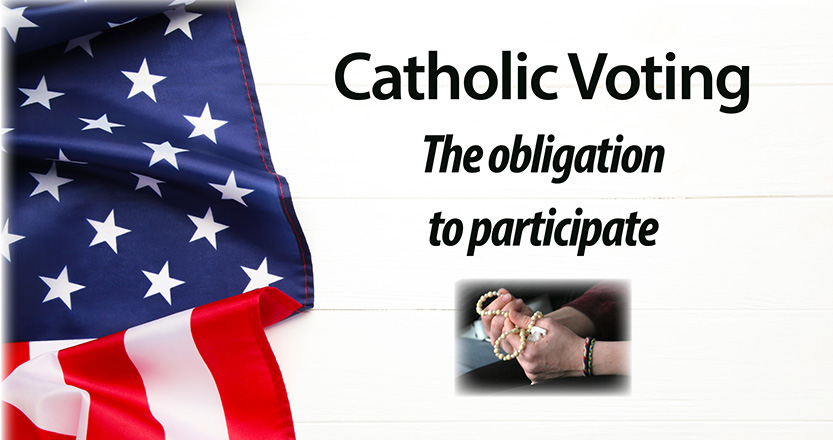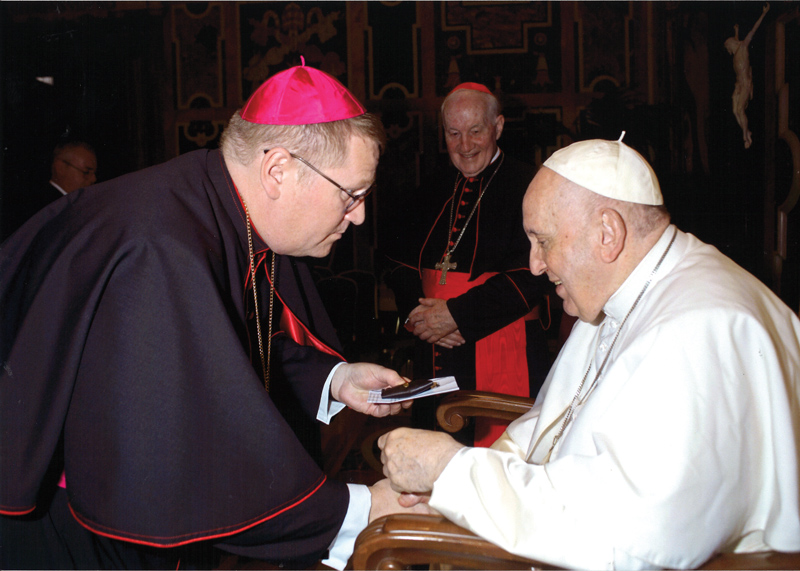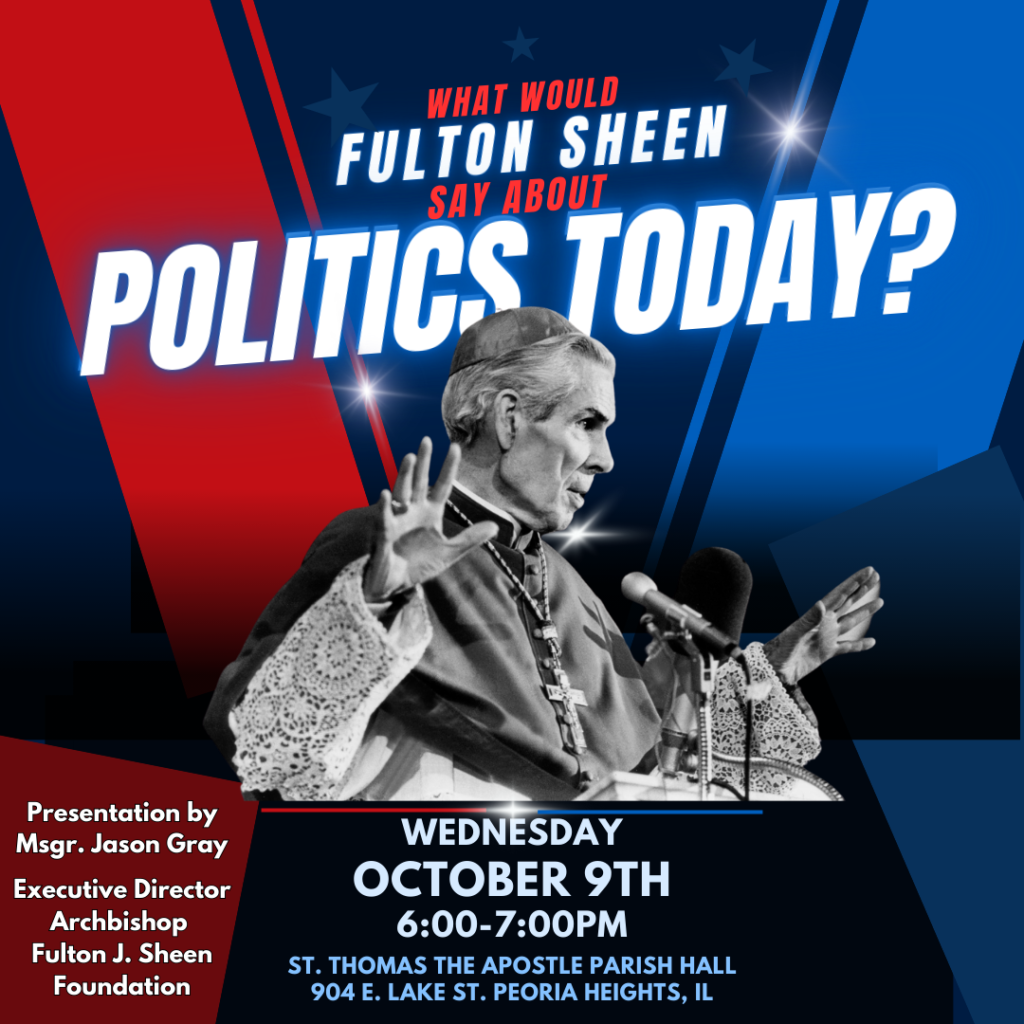Catholic Voting – the obligation to participate, and Fulton Sheen

In a letter to priests in advance of the 2024 elections, Bishop Louis Tylka wrote, “As Catholics we are to engage in the political process and to vote our conscience.”
The formation of conscience
In order to help form our conscience, Bishop Tylka points to resources such as the U.S. Conference of Catholic Bishop’s (USCCB) teaching document, “Forming Consciences for Faithful Citizenship”
An introductory note to the document suggests putting on ‘the mind of Christ’” (1 Cor. 2:16), by listening to Him in silence, service, and prayer: “Turn off the TV and the podcast …. volunteer at a soup kitchen, a homeless shelter, a crisis pregnancy center …. pray often.”
“Sometimes we hear: a good Catholic is not interested in politics. This is not true: good Catholics immerse themselves in politics by offering the best of themselves so that the leader can govern.” – Pope Francis
Such listening results in a sensitivity to “the voice of God resounding in the human heart, revealing the truth to us and calling us to do what is good while shunning what is evil.”
The “Faithful Citizenship” document reminds us that abortion and euthanasia are “intrinsically evil” as they attack God’s gift of life itself.
Perhaps Surprisingly
Perhaps surprising to many, there is not an outright prohibition against voting for a pro-choice candidate.
“A Catholic cannot vote for a candidate who favors a policy promoting abortion, euthanasia, assisted suicide … if (italics added) the voter’s intent is to support that position.”
However, “There may be times when a Catholic who rejects a candidate’s unacceptable position … promoting an intrinsically evil act may reasonably decide to vote for that candidate for other morally grave reasons.”
The process of research and prayer that would be expected to justify a Catholic citizen’s decision not to vote might be even more involved and time-consuming than for casting a ballot.
“Faithful Citizenship” is careful to clarify that, “Voting in this way would be permissible only for truly grave moral reasons, not to advance narrow interests or partisan preferences.”
Perhaps surprising as well, the teaching document does not stipulate an absolute requirement to vote.
“When all candidates hold a position that promotes an intrinsically evil act, the conscientious … voter may decide to take the extraordinary step of not voting for any candidate.”
If anything, though, in the spirit of “Faithful Citizenship,” the process of research and prayer that would be expected to justify a Catholic citizen’s decision not to vote might be even more involved and time-consuming than for casting a ballot.
Faithful citizenship – in summary
In summary, “The Catholic approach to faithful citizenship rests on moral principles found in Sacred Scripture and Catholic moral and social teaching as well as in the hearts of all people of good will.”
What would Fulton Sheen say about politics today?
Regarding being grounded in God in one’s politics and everything else, Fulton Sheen wrote, “It’s impossible to lose your footing when you’re on your knees.”
To hear more about what he would say about politics today, please consider attending, “What would Fulton Sheen say about politics today?” – a presentation by Msgr. Jason Gray, executive director of the Archbishop Fulton J. Sheen Foundation, on Wednesday, Oct. 9 from 6 to 7 p.m. at St. Thomas the Apostle Parish Hall in Peoria Heights.







